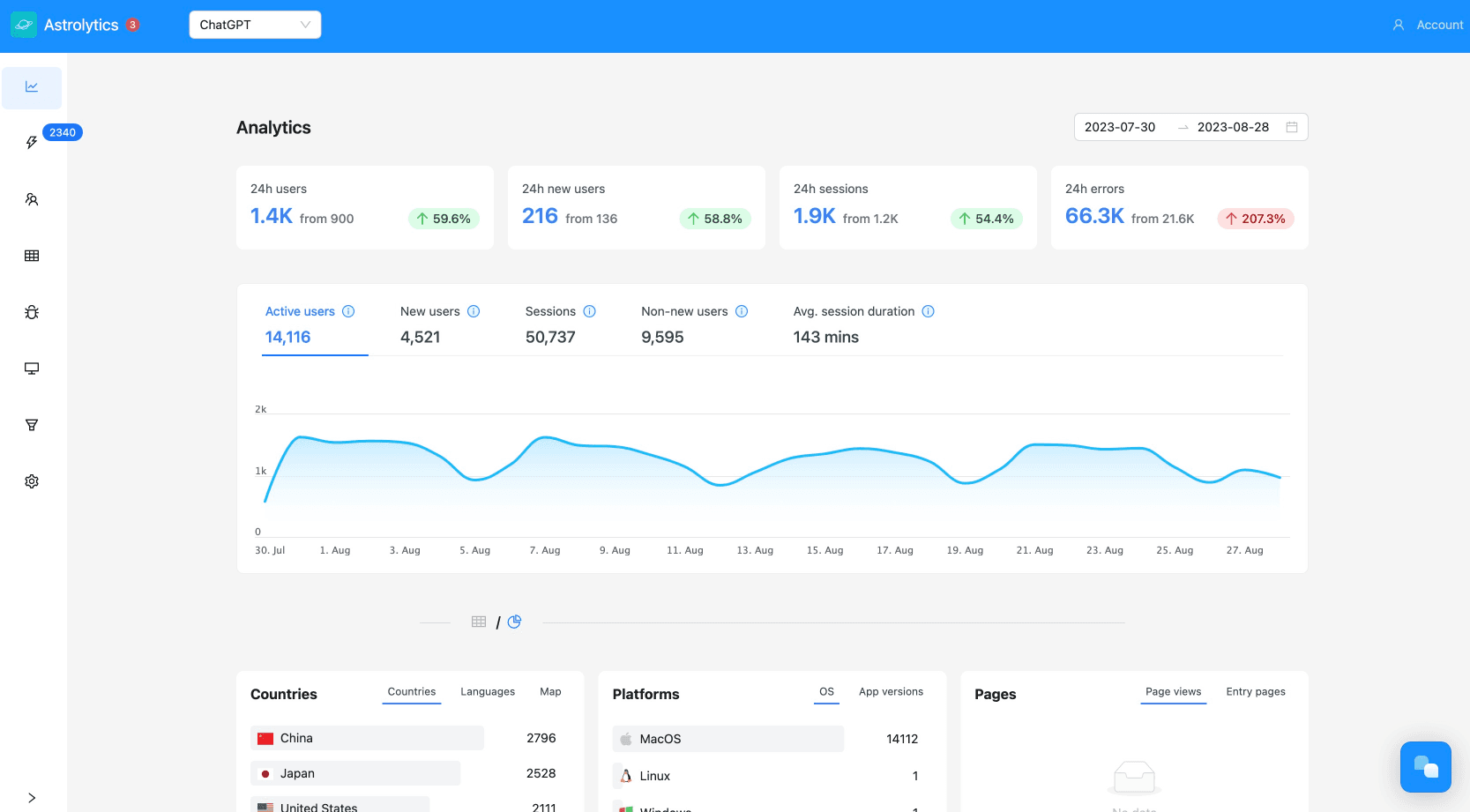July 18, 2023·Analytics
Understanding GDPR: Is Google Analytics in Compliance?
Discover the implications of GDPR for businesses using Google Analytics. Ensure compliance and avoid potential penalties with our quick guide.

In today's world of big data and analytics, maintaining user privacy is paramount. It's not just a matter of ethical responsibility, it's also a legal requirement in a vast amount of cases. In this context, the General Data Protection Regulation (GDPR) has become a significant focal point. This post will delve into what GDPR is, why some analytics providers (like Google Analytics) might fall short of its requirements, and tips on staying GDPR compliant when implementing an analytics tool.
Understanding GDPR
The GDPR is a comprehensive data protection law implemented by the European Union in 2018. Its primary purpose is to provide individuals with control over their personal data, a fundamental right. To be "GDPR compliant", organizations must ensure several key aspects, of which some of the most relevants are:
- Transparency: Users must know how their data is collected, processed, stored, and used. This is usually accomplished with a clearly written privacy policy that is easily accessible to the users.
- Consent: Companies must receive explicit and informed consent from users before collecting their data. This is done with the infamous cookie consent popup.
- Data minimization: Companies should only collect necessary data, nothing more. If they only need a username, password, and email address to create an account, they should not ask for unnecessary information like physical address, age, or phone number.
- Security: Data must be stored and processed securely.
- Right to access, rectify, and erase: Users have the right to access their data, correct inaccuracies, and request data deletion.
Google Analytics
The following reasons may pose troubles to staying GDPR compliant:
- Data Minimization: Google Analytics collects a substantial amount of user data by default, potentially violating the GDPR's data minimization principle, which states only necessary data should be collected.
- Complex Consent Process: Obtaining explicit and informed consent from users for Google's data collection practices can be difficult due to the platform's intricacy.
- Transparency Concerns: Google uses the collected data for various purposes, such as product improvement and targeted advertising. This usage might not fully comply with the GDPR's transparency requirements, which dictate that users should know how their data is processed and used.
- Data Access, Rectification, and Erasure: The GDPR grants users the right to access their data, rectify inaccuracies, and request data deletion. However, exercising these rights can be complex with Google Analytics due to its complicated data management process.
- Data Storage Location: Google Analytics stores data in the United States, a country that, according to GDPR, does not provide an adequate level of data protection. This cross-border data transfer may conflict with the GDPR's data protection standards.
The data collected by Google Analytics helps Google improve its other services, such as Search and Ads. Understanding user behavior, demographics, and trends can provide insights that help Google refine its algorithms, user experience, and advertising products. So if you were wondering why Google Analytics can remain free, the reason is that you’re the product.
The Privacy Paradox: When Google Analytics Falls Short
In the current privacy-conscious world, Google Analytics often struggles to provide accurate data. Users increasingly employ ad blockers, use incognito mode, or opt for privacy-first browsers, all of which can limit the data collected by Google Analytics. For example, ad blockers can prevent Google's tracking code from loading, leading to gaps in data collection. Similarly, privacy-first browsers like Brave block third-party cookies by default, disrupting Google Analytics' data tracking.
Who Should Worry About GDPR?
GDPR's reach extends beyond European borders. It applies if you have users in the EU, regardless of where your servers are or the industry you're in. Your revenue, company size, or whether you're an indie developer or global enterprise doesn't exempt you from GDPR compliance.
If you're an indie hacker with a small project, the potential fines may seem daunting, but regulators take a pragmatic approach. Fines are calculated based on various factors, including the company's size, annual turnover, and the severity and nature of the violation. Even so, GDPR non-compliance can still have serious consequences.
The Consequences of GDPR Non-Compliance
Non-compliance with GDPR can lead to hefty penalties. The fines can reach up to €20 million or 4% of a company's annual global turnover, whichever is greater. But the damage isn't just financial; it can also severely harm a company's reputation. If you’re curious about these fines, you can read what the biggest GDPR fines were in 2022.
How to implement an analytics tool
If you’re looking to implement an analytics tool like Google Analytics, ensuring GDPR compliance with GA would involve several steps, including:
- Configuring Google Analytics to anonymize IP addresses and disable data sharing settings.
- Implementing a clear, GDPR-compliant privacy policy detailing how user data is collected and used.
- Creating a cookie consent banner to obtain explicit user consent before activating Google Analytics.
- Regularly conducting privacy impact assessments to ensure ongoing compliance.
Despite these efforts, ensuring complete compliance with Google Analytics could still be challenging due to the platform's complexity and evolving data privacy laws. In fact, Austria determined that using Google Analytics violates GDPR and Denmark has ruled that Google Analytics is illegal if you don’t take pseudonymisation measures.
In conclusion, while Google Analytics is a powerful tool, it may not be the best fit for GDPR compliance due to the challenges it presents. It's crucial to consider privacy and GDPR requirements when choosing your analytics tool, balancing the need for insights with your users' right to privacy. Remember, you are subject to GDPR as long as you have users in Europe, regardless of where your servers are located or your own demographics.
At Astrolytics.io, we’re serious about your data so you don’t have to even think about this. Our servers are hosted in Europe and we do not collect ip addresses or use cookies, so you should not be required to ask for consent or deal with any of the hassles of using Google Analytics. You can also check our docs to learn what we collect.

